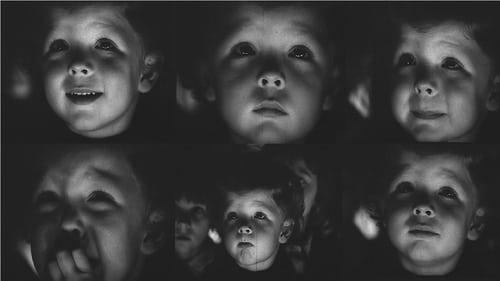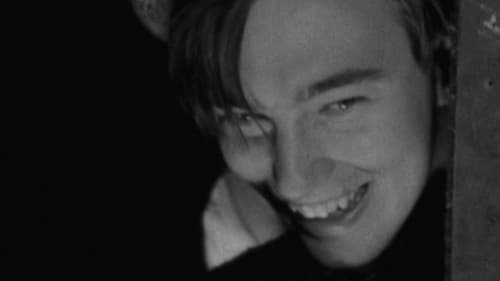Ingenivm Nobis Ipsa Pvella Fecit: Part I (1975)
장르 :
상영시간 : 5분
연출 : Hollis Frampton
시놉시스
An experimental short by Hollis Frampton who films the female form during various activities.

In GLORIA! Frampton juxtaposes nineteenth-century concerns with contemporary forms through the interfacing of a work of early cinema with a videographic display of textual material. These two formal components (the film and the texts) in turn relate to a nineteenth-century figure, Frampton's maternal grandmother, and to a twentieth-century one, her grandson (filmmaker Frampton himself). In attempting to recapture their relationship, GLORIA! becomes a somewhat comic, often touching meditation on death, on memory and on the power of image, music and text to resurrect the past.

A documentary on the Olympic games of ancient Greece, made during the 1924 games.

Short film in the Hermitage Museum looking at da Vinci's Madonna Litta.

A 10 minute long journey of emotions that befall children faces. Fear, Curiosity; a Smile. They all sit in a dark theater. What they see, we don't; we can only guess from their faces.

A rapturous audio-visual mix that “deliberately seeks a hidden order in randomness.” The film combines the face of a woman in ecstatic, contemplative prayer with shots of an animal rights activist, and a scantily clad model advertising Russian cars at the International Auto Show, New York. - Harvard Film Archive

The photographs of a member of the Gestapo, with narration from the captions he left in his album. Film released in 1964.

The lives and interactions of four neighbours in an apartment building are seen simultaneously in four different rooms. Flatlife is an animated film created by Jonas Geirnaert in 2004 was chosen for the competition of short films at Cannes in 2004.

Four young men and a young woman sit in boredom. She smokes while one strums a lute, one looks at a magazine, and two fiddle with string. The door opens and in comes a young man, cigarette between his lips, a swagger on his face. The young woman laughs. As the four young men continue disconnected activities, the other two become a couple. When the four realize something has changed, first they stare at the couple who have kissed and now are dancing slowly. The four run from the house in a kind of frenzy and return to stare. The power of sex has unnerved them.

With the screen split asymmetrically, one part in positive, the other negative, the film documents the evolution of simple celled organic forms into chains of cells then more complex images from tribal cultures and contemporary modernist concepts. The images react, interpenetrate, perhaps attack, absorb and separate, until a final symbiosis (or redemption?) is achieved.

"I have not changed the editing structure. I have made the films printable. They are the first known fully collaged films, i.e., films made from found footage, and were done sometime in the ‘40s. Cornell combines Vaudeville jugglers, animal acts, circus performers, children eating and dancing, science demonstrations, mythical excerpts, and crucial freeze-frames of faces into a timeless structure, totally unconcerned with our usual expectations of “montage” or cinematic progression. He collects images and preserves them in some kind of cinematic suspension that is hard – impossible – to describe. But it’s a delight to anyone whose soul has not been squashed by the heavy dictates of Art." —Larry Jordan

A cellist attempts to rescue a woman swept out to sea, only to find he must battle a series of overly possesive sea creatures.

". ..As though you were approaching earth as a god, from cosmic consciousness. You see the same things but with completely different meaning."

The dangers of drinking and driving are illustrated to a teenager returning from a beach party, where after having "one too many beach beers" he runs over a young mother and her child. This black and white short is not to be confused with the later color film, with same title, from 1968 (some sources indicate 1965).

A perfect fusion of poetry and film, with dense layered imagery and music from electro pioneers Louise and Bebe Barron. The writer Anaïs Nin provides dialogue from her novella “House of Incest” and appears adrift in the undersea realm of Atlantis before ascending to dry land.

A driver who got into an accident while drunk wakes up in the hospital and discovers that his leg has been amputated. As he's lying in bed, he begins to wonder what happened to the passengers in his car.

Starting in the late 1930s, illustrator and experimental animator Douglass Crockwell created a series of short abstract animated films at his home in Glen Falls, New York. The films offered Crockwell a chance to experiment with various unorthodox animation techniques such as adding and removing non-drying paint on glass frame-by-frame, squeezing paint between two sheets of glass, and finger painting. The individual films created over a nine-year period were then stitched together for presentation, forming a nonsensical relationship that only highlights the abstract qualities of the images. —Kansas City Electronic Music and Arts Alliance

An animated short film from Stan Vanderbeek.

Soviet animation movie based on a Kazakh tale: a little bird fights against a three-headed dragon.

Its slow somnambulic rhythm, its animalistic jungle sounds as well as the eerily mixed images create a dream mood that comes closest to my actual dreaming-feeling. The long black phases between the sequences are as important as the images themselves because they leave empty space where the "echo" of the last image can seep through without interfering with the following image. But our logical mind still somehow feels compelled to construe some kind of sense, parallel, or some erratic story out of it.














